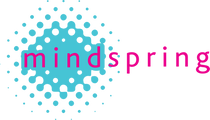Positive Psychology
What is positive psychology?
Simply put, positive psychology is the study of the factors that enable us to live happy and fulfilled lives. Sounds obvious? Not so it seems. For the last 50 years, psychology has studied the reverse – that is, what’s wrong with you? With a little help from evolution and the assistance of psychology we’ve all become adept at labelling and recognising what’s ‘not quite right’ with our lives; why we’re feeling bad; what our weaknesses are and what we need to improve.
Business and education has followed suit… just think about performance management systems; appraisals; coaching; behaviour policies… scratch the surface and they often start from a position of weakness. So positive psychology reverses the focus. Without negating the fact that life and business can be tough, it helps people understand how to bring a positive focus, purpose and resilience to their lives. As such it explores factors such as:
- Exploring and using your strengths
- Enriching your positive emotions
- Building resilience and the ability to handle negativity productively
- Understanding how to develop hope and optimism
- Aligning your goals, your values and enhancing motivation
- Investing in high quality relationships
Positive psychology has particular relevance for coaches, organisational performance and education. It offers the world of coaching something very special – an evidence based framework and a rich toolkit of interventions that have been proven in their effectiveness.
Strengths Based Coaching
Using strengths to coach in an energising way
For too long, coaching in organisations has been about ‘filling gaps’, that is, a concentration on what someone is not good at and where they need to improve.
For instance, research shows that in a typical 60 minute one to one, three quarters of this time is spent on ‘areas to improve’.
This seems to be based on the mistaken philosophy that the best way to leverage performance is through the development of weaknesses rather than an understanding that the route to high performance lies in the knowledge, encouragement and use of strengths.
How does it work?
Using the unique StrengthsREADer™ approach, coaches will firstly gain a personal insight into their own strengths and then understand how to apply and utilise this learning with clients. Specifically this will cover:
- Recognising and identifying your personal strengths;
- Exploring your strengths and how they serve you in life;
- Applying your strengths every day and becoming creative in their application;
- Developing your lower strengths and extending your strengths reach.
Education and Parenting
Primary and secondary schools across the UK are embracing positive psychology, encouraging pupils to take a proactive exploration of happiness and resilience early on in life. In 2012, Lucy published her book, Well Being Lessons for Secondary Schools: Positive Psychology in Action, which outlines a comprehensive 36 lesson curriculum for 11-14 year olds.
Lucy is also a facilitator for the world renowned Penn Resilience programme and regularly speaks to parenting forums on developing resilience in children.
Contact Lucy to discuss in-house workshops for inset day training or to understand more about addressing teacher training.
Positive Psychology Resources and Research
“Strengths based coaching has been such a positive experience for all of my teams, the training has made a huge difference to the engagement and motivation on an individual, group and centre level. Strengths bring so much more to the conversation and enable you to get under the skin of how a person ticks! It’s the obvious lever for increased performance”.
Head of Contact Centre, RAC
“Positive Psychology programmes should probably be mandatory for senior and middle management embarking on any serious corporate, structural or culture, change initiative. I found Mindspring’s programme an outstanding and practical insight into building positivity and resilience within the business organisation in a time of challenge and change”
Vice President, Field Operations, Hertz Europe
“Somehow just knowing that the exercises and interventions had been proven to make a difference, made a difference! It’s not just ‘looking on the bright side’. Positive Psychology approaches give you valid, credible and useful additions to your coaching toolkit”
Anne, Coach
Get in touch to find out more“It might sound obvious but happier people are more productive people…when you count the time an HR team can spend on discipline and grievance, unproductive time with unhappy people, unhappy with their relationships at work and unhappy with the trust, there is no doubt in my mind of the value of this approach”
Alison, HR Manager



